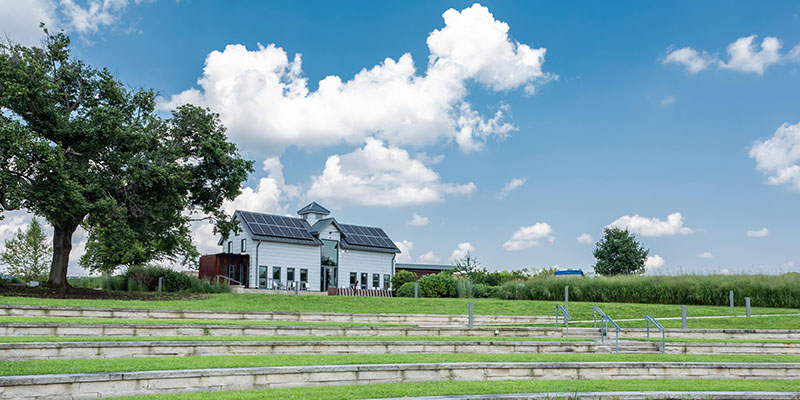Train derailment opens up environmental concerns
The Eden Hall Campus is located less than 40 miles from the derailment. Photo Credit: Chatham University
March 21, 2023
When part of a Norfolk Southern train that contained 11 cars housing toxic materials derailed on Feb. 3 in East Palestine, Ohio, it resulted in a massive fire involving the release of an unknown quantity of toxic chemicals into the surrounding environment.
The site of the derailment is only an hour drive from Pittsburgh. Does that mean Pittsburghers need to be concerned about environmental and health concerns, too? And what other lessons can be learned from this disaster?
East Palestine residents have reported a strong chemical odor, headaches, nausea and sudden livestock death, according to news reports. The Environmental Protection Agency (EPA) and other government agencies assured the community’s residents that the area’s air and water is safe to consume.
Dr. Ryan Utz, assistant professor of water resources at Chatham University, is not concerned with possible long-term effects on Pittsburgh’s environment.
“If you’re talking about an environmental stressor,” Dr. Utz said, “eventually, [the derailment] will get diluted. It could be the case that environmental contaminants are lingering [in East Palestine] for decades, but it exists on a very limited temporal and spatial scale.”
Dr. Utz believes this disturbance will likely have no detectable effect on the environment here in Pittsburgh, but the same cannot be said for people living closer to the derailment.
“For people in the neighborhood,” he said, “it’s going to feel like hell on Earth.”
Dr. William Pfalzgraff, assistant professor of chemistry at Chatham, pointed out an important local lesson that can be taken from the event.
“This derailment will be a generation-defining event for the town, resulting in years, if not, decades of cleanup,” he said. “These people are right to be worried, and they’re right to be asking questions of government agencies.”
At Chatham University, where a commitment to the environment and sustainability are part of the institution’s mission, there are growing concerns from students about the overall handling of the situation.
“If the government is barely giving any aid and cleanup solutions to a small town that is struggling form this human-caused disaster,” said Lena Barakat ‘25, “then it’s safe to think that this is how they will continue to react as more natural disasters and environmental issues come up in the future.”
Dr. Pfalzgraff cited the role that residents of East Palestine played in the EPA investigation when the agency began testing for toxins due to local concerns. “There is so much value in citizen science,” he said.
Citizen science is the practice of people participating in scientific data collection and, sometimes, interpretation. It’s recognized as an essential tool for equitable access to information, and the data collected by citizen science projects is often used by official task groups, from National Geographic biodiversity studies to UN operational agencies. There are plenty of ways to participate in citizen science, especially at Chatham.
Dr. David Finegold, Chatham University’s president, also expressed the value of citizen science and the University’s dedication to providing opportunities and funding for such endeavors. He referenced the recent growth in the number of students who do research with faculty members that is presented at the Department of Science Research Days.
“Dr. Utz’s research portfolio is wonderful,” Dr. Finegold said.
Dr. Utz’s research focuses on an oft-overshadowed category of environmental stressors: press disturbances. While a pulse disturbance is acutely severe with effects that are relatively limited in space and time, press disturbances exert sustained stress on the environment that will consistently and progressively harm the environment. For example, one area of Dr. Utz’s research is in the long-term salinization of freshwater spaces.
“A lot of recent research shows that the salinity of freshwater [in Pittsburgh and elsewhere] is slowly increasing with time. It’s too slow for it to be newsworthy, but increased salinity is already affecting natural ecosystems and human infrastructure will soon follow,” Dr. Utz said. “That’s not going away.”
Many projects within Chatham University’s science department involve some aspect of citizen science. There are opportunities to participate for every student, no matter their major. If students are interested in getting involved or learning more about environmental research, reach out to Dr. Utz at [email protected].






